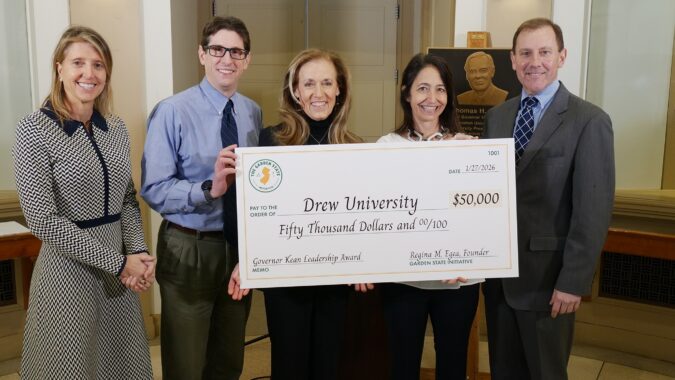A legislatively appointed panel charged with making recommendations on how New Jersey should structure its economic development incentives released its final report today amidst a stalemate between Gov. Phil Murphy and the Legislature.
The bipartisan Select Committee on Economic Growth Strategies, led by State Senators Senator Bob Smith and Joseph Pennacchio, made 25 recommendations to control the costs of the program, increase transparency, and improve the public benefit of incentives offered to businesses to create jobs and invest in New Jersey.
Among the key recommendations is to cap individual incentive awards — but not to put a cap on how much the entire program could offer in any one year. Whether incentives should be capped or not has been one of a number of differences between the Governor’s office and legislative leaders.
"NJBIA strongly supports the report's recommendations of no annual overall cap combined with enhanced net benefit tests,” said NJBIA Vice President of Government Affairs Christopher Emigholz. “If a net benefit test shows that the state is benefiting, then why would we want to cap success?
The report also recommended reducing the amount of tax credits that can be provided for a single award project, citing the improvement of economic conditions since the last program was created in 2013.
It recommends adding community benefit agreements as part of incentive awards to ensure that attracting and retaining businesses in a community improves the community itself. Benefit agreements could require companies to hire local residents, create open spaces, or provide child care centers.
On the cap issue, the committee said the state’s incentives under the 2013 Economic Opportunity Act were worth roughly twice the national average of incentives offered by other states. The committee recommends limiting individual awards to “the amount necessary to induce the project.”
However, if projects result in a net benefit to the state and have other desired effects, such as stimulating job growth and contributing to urban revitalization, “the Legislature should not limit the aggregate amount of awards that can be granted in a given year.”
The committee also called for allowing award amounts to be adjusted up or down depending on how a company performs.
“Because incentive awards cannot be adjusted upward for businesses that outperform their commitment, businesses are better served by providing an ambitious job creation estimate rather than a prudent one,” the report stated about the expired program.
“An incentive program based on jobs created should contain a provision allowing the Economic Development Authority to provide credits for a certain number of jobs that exceed the business’s initial estimate, and likewise, a way to scale down awards that fail to meet estimates….”
Other recommendations included:
- Explicitly authorize the Attorney General to prosecute companies for falsifying information;
- Impose penalties on companies that include false information in annual recertification attestation;
- Allow the EDA to access data from the Departments of Labor and Workforce Development and Treasury to better monitor compliance;
- Reevaluation of programs every two years by a qualified outside organization.
New Jersey has been without its two major economic incentive programs—Grow NJ and ERG—since they expired July 1.
For his part, Murphy has proposed an overall cap on incentive spending and wants to create or revise five incentive programs. They include:
- NJ Forward – a program that would provide tax credits to companies engaged in high-growth industries, U.S. businesses creating a Northeast headquarters, foreign businesses creating a U.S. headquarters, and job retention projects.
- NJ Aspire – a program that would promote investments in commercial, residential, and mixed-use projects through a place-based gap financing program.
- Brownfields Redevelopment Program – a program that would complement the EDA’s existing Brownfields Loan Program and promote remediation projects and job creation.
- Historic Preservation Tax Credit Program – a program, modeled after the National Historic Tax Credit program, which would partially reimburse developers who revitalize income-producing historic buildings.
- Innovation Evergreen Fund – a fund designed to promote venture capital investment into New Jersey startups.
Emigholz stated: "We know that the business community, the Legislature and Governor Murphy are all in agreement that a responsible and competitive tax incentive program, with appropriate oversight of its effectiveness, plays a key role in the state's economic development strategy.
"With the report now complete, it is imperative that there is no further delay in our policymakers working together to deliver a comprehensive program that is accountable, responsible and makes New Jersey regionally competitive.”



